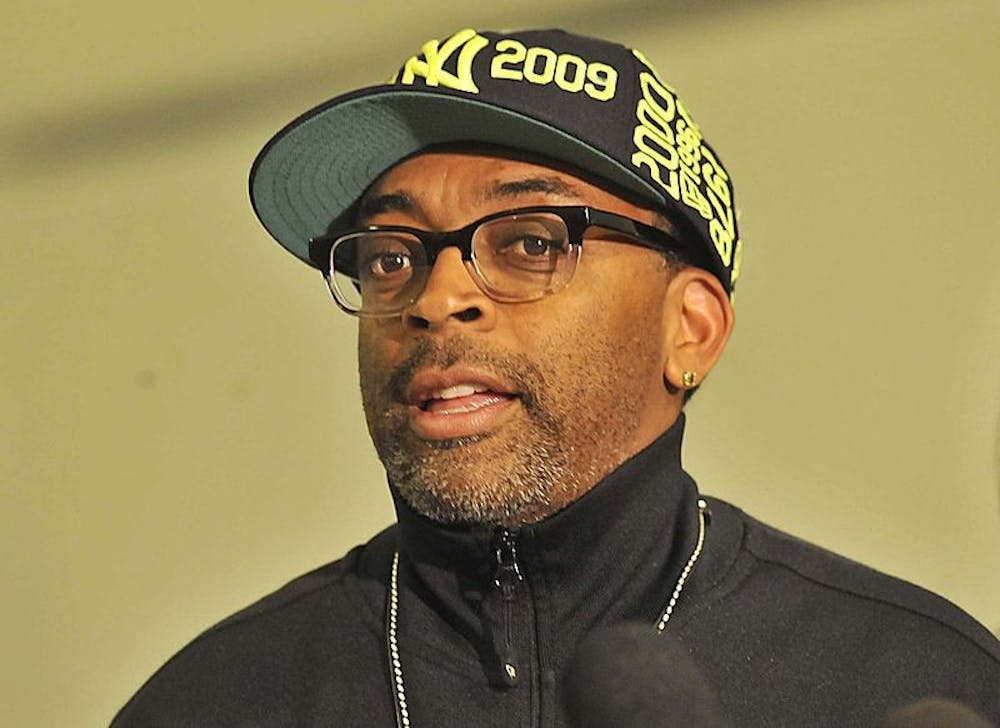The University recently announced that Spike Lee will be the commencement speaker this May. While many members of the Hopkins community may have heard of the Academy Award nominated director or even seen one of his films, there are many who are not familiar with his life, his work and the impact he has had on the film industry and issues of social justice.
Born in Atlanta in 1957, Lee spent most of his childhood in Brooklyn with his father, a jazz musician, and his mother, a schoolteacher. He attended Morehouse College in Atlanta and the Tisch School of the Arts graduate film program in New York.
Lee has been involved in a variety of roles in the film industry including writing, directing, producing, editing and acting. He began his career in the ‘70s with short films like Last Hustle in Brooklyn and made-for-tv movies like Horn of Plenty. Since then he has released an average of one film per year up until his most recent film in 2015, Chi-Raq. Lee has also done a number of documentaries, including the Laker-centric Kobe Doin’ Work and When The Levies Broke: A Requiem in Four Acts, which centers around Hurricane Katrina.
His first feature film, She’s Gotta Have It, which tells the story of Nola Darling (Tracy Camilla Johns) and her three lovers, was released in 1986. While this film was recognized at the Cannes Film Festival and the Independent Spirit Awards, it was not until the 1989 release of Do the Right Thing that he was recognized by the Academy Awards, receiving nominations for both Lee’s screenplay and Danny Aiello’s supporting role as Salvatore “Sal” Fragione. Do the Right Thing tells the story of a rise in racial tensions in a black neighborhood when Sal decorates a Wall of Fame in his pizzeria featuring solely Italian-Americans.
Do the Right Thing featured one of the major themes that would come to define Lee’s cinematic work: racial inequality. Before graduation arrives on May 18, it is essential for seniors, if not the entire Hopkins community, to view the Spike Lee films that have defined a great deal of discourse around issues of race, identity and inequality.
Spike Lee’s golden age is generally regarded to have occurred between 1988 and 1992. Although he’s released films since that period, they are often regarded with much less acclaim than the films from that period.
His 1988 film School Daze is regarded as one of the better portrayals (not to mention one of the few) of education at a historically black university. The film is part musical and focuses on the juxtaposition between Laurence Fishburne’s (The Matrix, Black-ish) Vaughn “Dap” Dunlap and his social justice against the partying, fraternity lifestyle of Julian Eaves, played by Giancarlo Esposito (Breaking Bad).
He followed this with the 1990s classic Mo’ Better Blues that features Denzel Washington (The Equalizer, Training Day) as the gifted jazz trumpeter, Bleek, as he struggles with drug abuse, women and the battle between mainstream appeal versus staying true to one’s artistic values.
Bleek competes against his own standards as well as those of Shadow, another member of his band who quickly becomes his rival due to his tendency to cater more to mainstream tastes.
One of the most essential films to consider viewing is 1991’s Jungle Fever starring Wesley Snipes and Annabelle Sciorra (The Hand That Rocks the Cradle, The Sopranos). The film features the depiction of an interracial relationship in New York as well as the societal pressures placed upon those in the relationship. The film also features commentary on family relationships and drug abuse.
Lee reconnected with Washington in 1992 for the biopic Malcolm X, featuring Washington as the titular civil rights leader. The film served as a turning point for Washington, resulting in him becoming nominated for the Academy Award for Best Actor through the sheer strength of his portrayal of Malcolm. Other great films by Lee include Crooklyn, Inside Man, 25th Hour and Miracle at St. Anna.
Lee’s influence on the film scene blazed a trail that many of his contemporaries follow. Though his most recent films have lost the steam of his older work, Lee remains an influential director and voice in the African-American community. He’s seen his share of controversy, but he’s also one of the more important artistic minds of the past generation.





